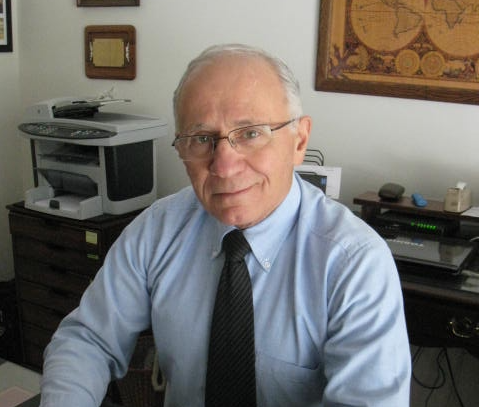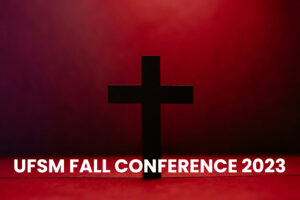“You, however, are controlled not by the flesh, but by the Spirit, if the Spirit of God lives in you. And if anyone does not have the Spirit of Christ, he does not belong to Christ…. For all who are led by the Spirit of God are sons of God.” Rm. 8.9,14
[This is in-depth teaching on becoming spiritually-minded. It is lengthy and requires time for absorption. Please do not hurry. Take time to contemplate and rethink statements.]
The Way of the Spirit
Bread from Heaven
When the children of Israel departed Egypt God graciously provided bread from heaven, called manna, for them to eat. They daily witnessed this miracle occur, gathered the manna, formed it into a dough, baked it, and ate it for their meals. The Israelites were not spiritual people but they were of the flesh. They could “naturally” see the manna, feel it, smell it, and taste it. This is the nature of the Old Covenant and the way of the natural man.
However, a New Covenant was initiated in Christ Jesus. Jesus became the living bread from heaven. (Jn. 6.51) At a gathering with His disciples, “Jesus said to them, “Truly, truly, I tell you, unless you eat the flesh and drink the blood of the Son of Man, you have no life in you.” Jn. 6.53 At that point it is written that many of his disciples found this a “difficult saying” and “From that time on many of His disciples turned back and no longer walked with Him.” (Jn. 6.59, 66) Why were His words “difficult” to understand? It is because the words did not deal with the natural man of the flesh but of the spirit. Jesus then said, “The Spirit gives life; the flesh profits nothing. The words I have spoken to you are spirit and they are life.” Jn. 6.63
In order to truly understand the New Covenant in Christ we must become spiritually-minded.
The Way
For most of our lives we learned to grow, mature, and succeed to whatever measure in life by what many may call our “God-given talents,” which are: our ability to draw upon our knowledge to logically think through situations and circumstances; to be sensitive to our physical senses of seeing, touching, hearing, etc.; and always trying to sensibly and morally respond to our emotions. These may be “God-given” abilities, but only in the sense, they are innate to all created beings. In reality, they collectively constitute what the Bible would refer to as the flesh or the natural man. The flesh links man to his natural environment and to the society in which he lives. It enables him to function in this world. The flesh can lead one into good deeds as well as evil. The choice is his, according to his moral choices, that is, his own sense of right and wrong. This is the way of the natural man.
When it comes to things of the spirit, the flesh can be deceptive and ineffective. It can be deceptive because the flesh contains all that is needed for a “religious” experience linked to the flesh. I am not using the term religion here in a positive sense, but in a way that is deceitfully negative. One may learn from a holy book that contains moral principles and godly behavior, physically enter into religion by seeing, hearing, touching, smelling, and even tasting symbolic representations (icons, charms, idols, priestly practices, sacrifices, etc.), and/or respond emotionally with “feelings” of satisfaction and strong attractions. The Old Testament tabernacle and The Law is a prime example of such a religious experience. It contained all that man needed to do those things in an outward way to satisfy his part of God’s covenant—which by the way, man’s fleshly nature was too weak to keep. This covenant was given, however, as a temporary measure, only until a higher, a more perfect covenant would come, of the spirit, “But when Christ came as high priest of the good things that have come, He went through the greater and more perfect tabernacle that is not made by hands and is not of this creation.” Heb. 9.11 “Not of this creation” indicating it is not of the flesh but of the spirit.
Entrance into this spiritual domain is by one way, and one way only, “Jesus replied (to Nicodemus), ‘Truly, truly, I tell you, no one can see the kingdom of God unless he is born again.’” Jn. 3.3 Now being born again is not a mere figure of speech, it is a truly spiritual experience. To be born of God (see Jn. 1.12-12) is to have one’s spirit come alive within by being joined to the very Spirit of Christ. This changes everything. Things of the flesh can only mimic that of the spirit but not experience its reality. In the flesh, one could learn to teach doctrine, to counsel, to pray, to lead worship, and so on, but something remains amiss. Outwardly the flesh may be satisfied, but only in short term spurts. Inwardly the heart is not satisfied. The spirit longs for communion with God. For out of this intimate relationship with God our Father and Lord Jesus Christ is the issue of life. “I (Jesus) came that they may have life, and have it abundantly.” Jn. 10.10 This life is an inward realization, it is what we are and what we sense and experience inwardly (spiritually). The entrance has been made, a door has been opened, into the Kingdom of God.
We must understand, that by saying life, it does not refer to having some mere eternal existence—as a battery has so much life in it, or as the natural life that enters into us at birth and leaves us at death. Neither does it mean “going to heaven when you die,” entering a state of bliss and joy. There is a life that finds its expression out of an increasingly narrowing relationship with God—Father and Son through the Holy Spirit. Jesus said, “This is eternal life, that you may know (come into an experiential relationship) the Father and Jesus Christ whom He has sent.” Jn. 17.3 The scripture that comes to mind when considering this life is, “He who believes in Me, as the Scripture said, ‘From his innermost being will flow rivers of living water.’” Jn. 7.38 To walk in this fullness we must become spiritually-minded people. This is the way of the Spirit.
Becoming Spiritually Minded
To be a spiritual man (or woman) is to be spiritually minded. It is not so much what we do, but what were are and how we think. One may be very active in many church-related activities and yet not be spiritually minded, for to be spiritually minded begins only with an inward transformation and has little to do with outward activities regardless of how well-meaning and seemingly righteous. Consider the following word,
“Do not be conformed to this world, but be transformed by the renewing of your mind. Then you will be able to test and approve what is the good, pleasing, and perfect will of God.” Rm. 12.2
We must have our way of thinking transformed (Gk. metamorphosis –which is the word scientifically used to describe the process by which a caterpillar completely transforms (metamorphosis) into a butterfly; an altogether different creature). For example, one can easily sense in the natural that he or she is sitting in a church service, in which our reasoning, senses, and emotions are fully engaged. However, the Word of God says that “God raised us up with Christ and seated us with Him in the heavenly realms in Christ Jesus.” Eph. 2.6 Regardless of how remotely possible or logical this must seem in the natural, it is a spiritual fact and we must consider it as Godly truth. It is factual! It is a reality not to the flesh but to the spirit. We must receive this truth into our hearts by faith and live our lives accordingly. Thus, we are not only sitting in a physical church service, but we are equally spiritually present, with Christ in the heavenly, in the true tabernacle. The physical church is what we know in the natural, the heavenly church is what we enter by faith—it is spiritual. This requires a new way of thinking.
I am quite certain that in a gathering of believers, the worship time will never be the same again if all were to truly believe, with absolute conviction and confidence, our Lord’s promise, “For where two or three have gathered together in My name, I am there in their midst,” Mt. 18.20. Things like focus, attitude, reverence, conduct, humbleness, and so on will take on new meanings. Christ is in our midst! He is in our midst not symbolically, or theoretically, but in Spirit and truth. Believe it, and it becomes so for you. Don’t believe it, and for you, it is not so.
There are many aspects to becoming spiritually-minded and we are limited in time and space. So, a few aspects will briefly be touched upon.
The Spirit of Life in Christ Jesus
“For in Christ Jesus, the law of the Spirit of life has set you free from the law of sin and death. For what the law was powerless to do in that it was weakened by the flesh, God did by sending His own Son in the likeness of sinful man, as an offering for sin. He thus condemned sin in the flesh, so that the righteous standard of the law might be fulfilled in us, who do not walk according to the flesh but according to the Spirit.” Rm. 8.2-4
Soul-Life (psuche)
May we begin here by discussing the difference between “life,” and “the Spirit of Life.” Just what does the word life mean? Let’s consider first our natural life. The Greek word psyche is used to describe our natural soul-life. With this soul-life, we have the ability to relate with all that is in our surroundings: the physical environment, other people, and all living things on the earth. The soul-life is very self-centered, and Jesus had a word to say about that,
“For whoever wants to save his life (psuche) will lose it, but whoever loses his life (psuche) for My sake will find it. What will it profit a man if he gains the whole world, yet forfeits his soul (psuche)? Or what can a man give in exchange for his soul (psuche)?” Mt. 16.25-26
Yes, the same Greek word psuche is used in all instances in this passage. All too often we look to preserve our lives, now and in the world to come, that is to say, to preserve our well-being: our comforts, desires of the flesh, intellectual and talented pursuits, and so on. Psychologists would describe this kind of life as man’s ego—his self-centered life. Jesus is simply saying here that self-centeredness and the Kingdom of God cannot co-exist with one another. This is part of man’s fallen nature. Jesus says that a personal cross is the only answer for preserving our soul-life:
“and anyone who does not take up his cross and follow Me is not worthy of Me. Whoever finds his life (psuche, soul life) will lose it, and whoever loses his life (psuche, soul life) for My sake will find it.” Mt. 10.38-39
Paul writes, “I have been crucified with Christ, yet it is no longer I who live but Christ lives in me.” Gal. 2.20. What a revelation! What a spiritual fact to contemplate. It is a new way of thinking.
Spirit-life (Zoe)
There is a higher life than our soul-life (psuche) promised by our Lord, and this life is Zoe: “The thief comes only to steal and kill and destroy. I have come that they may have life (Spirit-life, Zoe), and have it in all its fullness.” Jn. 10.10 [It is too bad many Bible translations fail to make a distinction between pusche (soul) and Zoe (spirit) life.]
Jesus speaks of this life as eternal life, a life gained through the eating of the Tree of Life…which is Christ; and by coming into an intimate understanding and relationship with the Father and the Son (See Jn. 17.3). Understanding Spirit-life (Zoe) is of utmost importance. Read the following passage with the understanding of Zoe, spirit-life.
“You, however, are controlled not by the flesh, but by the Spirit, if the Spirit of God lives in you. And if anyone does not have the Spirit of Christ, he does not belong to Christ. But if Christ is in you, your body is dead because of sin, yet your spirit is alive (of Zoe) because of righteousness. And if the Spirit of Him who raised Jesus from the dead is living (of zoe) in you, He who raised Christ Jesus from the dead will also give life (spirit-life, Zoe) to your mortal body through His Spirit, who lives in you.” Rm. 8.9-11
Time and space do not allow a further elaboration on this wonderful passage but only let it be noted the distinct difference between the Spirit of life in Christ Jesus, Zoe, and the life of the soul, psuche. One is to be gained unto eternity, one is to be lost on the personal cross of dying with Christ—self-sacrifice only in Christ. One (soul-life) seems to occupy the mind, senses, and emotions of a man, the other (spirit-life) flows up and out of the heart:
“Whoever believes in Me, as the Scripture has said: ‘Streams of living water will flow from within him.’” He was speaking about the Spirit,…” Jn. 7.38-39
In brief, there is now a brand-new life (spirit-life, Zoe) within the believer, the life of Christ Himself, the Son of God, residing in the heart of the believer, desiring to find its expression.
Perfection and Participation
Of the many thoughts and scriptures that relate to being spiritually minded, I will only address these two concepts, that of perfection and participation. One should not think that Biblical perfection means being flawless or that participation means church involvement. In doing so, there is no room for spiritual truth and one is left in a sea of misconceptions and spiritual futility, which in turn leads to confusion, frustration, and mundane religious practices. The pursuit of both is attainable and greatly encouraged.
Perfection
“Therefore let us leave the elementary teachings about Christ and go on to perfection (maturity)…” Heb. 6.1
Let us…go on to perfection. Many Bible translations use the word perfection here, many others use the word maturity. Whichever word used, neither imply flawlessness. The word suggests completeness, being made ready, even as the fruit will ripen and become ready to eat. To the spiritual man, it means a progression or passing through stages in spiritual growth, the final culmination of which is the future consummation at the return of Christ.
Perhaps the greatest scripture defining spiritual maturity lies in 2 Peter:
“Grace and peace be multiplied to you through the knowledge of God and of Jesus our Lord. His divine power has given us everything we need for life and godliness through the knowledge of Him who called us by His own glory and excellence. Through these He has given us His precious and magnificent promises, so that through them you may become partakers of the divine nature, now that you have escaped the corruption in the world caused by evil desires.” 2 Pet. 1.2-4
Character, that which is of the true inward man, matters greatly to our God and Lord. The perfection of our inward nature is an end goal of our salvation. O’ that He would work in us both to do and to the will of His good pleasure. (See Phil 2.13) Our outward personalities may fool people, at least for a while, that is until our character begins to surface. But we stand naked before God: “For the word of God is living and active. Sharper than any double-edged sword, it pierces even to dividing soul and spirit, joints and marrow. It judges the thoughts and intentions of the heart. Nothing in all creation is hidden from God’s sight; everything is uncovered and exposed before the eyes of Him to whom we must give account.” Heb. 4.12-13
In this manner, do not confuse grace and fruit. Grace is what has been freely given to us in and through Christ. It is receiving the Divine favor and acceptance of God. We were all sinners saved by grace. A seed is planted into our hearts by this grace. But this seed must not be allowed to lie dormant, or in a state of infancy, it must grow, mature, and bear fruit—that is, be partakers of the divine nature. When one’s impatience becomes patient, that is fruit. When one’s lack of empathy becomes care for the well-being of others (love), that is fruit. As one gain in self-control, peace, goodness, etc. (see Gal. 5.22-23) he or she is bearing fruit. We must believe…believe that resident within us is everything we need for life and godliness through the knowledge of Him who called us by His own glory and excellence and that we are day-by-day becoming partakers of the divine nature. This is the way of the Spirit.
Participation
There is a scripture that reads, “From Him (Christ) the whole body, fitted and held together by every supporting ligament, grows and builds itself up in love through the work of each individual part.” Eph. 4.16 It is obvious from the context of this verse that each individual part, everyone in the Church, the Body of Christ, (should) participate in the activities of the Body to the mutual benefit of all, the whole Body. The Church, the many, must care for and nurture each individual. But this is accomplished as each individual contributes to the whole. It is a ministry of one-to-many resulting in the ministry of many-to-one. Care, of course, must be taken to safeguard the level of responsibilities to the spiritual maturity and calling of each member, never sending a child to do a man’s work. This difference is expressed Biblically between an immature child and a mature son.
What is not obvious from this verse is the context of the word for work (of each individual part.). This is very important for it speaks directly to the source and objective participating work. This word means power in action. It is a word from which we get our English word for energy. It is not potential energy to act or intermittent action. It is a-c-t-i-o-n, doing. What is also important about this word, when used Biblically, is that it typically refers to God’s energy which transitions to the believer, accomplishing His plan, from point to point. So, this work finds its source in God, and its terminus in the Body of Christ, the Church. Thus, this work does not rely on our abilities and skills to accomplish things on behalf of the Church. O’ how critical is the scripture:
For as many as are led by the Spirit of God, these are sons of God.” Rm. 8.14
Certainly, to be led of the Spirit must apply to the foregoing discussion ongoing on to perfection or spiritual maturity. The Godly fact must be clearly understood that each and every believer has been called, set into place, and joined together with other believers to form a unique entity called the Church, the Body of Christ. This must be understood most soberly. As a believer, there is a calling upon your life to function, in a spiritual way, as a unique member in this Body of Christ. It is a calling to participate in the activities of the Church, which is now, the Kingdom of God upon this earth.
“God put everything under His feet and made Him head over everything for the church, which is His body, the fullness of Him who fills all in all.” Eph. 1.22-23
“Instead, speaking the truth in love, we will in all things grow up into Christ Himself, who is the head. From Him, the whole body, fitted and held together by every supporting ligament, grows and builds itself up in love through the work of each individual part.” Eph. 4.15-16
To be led of the Spirit is to be guided by the Spirit into activities sometimes foreign and uncomfortably strange to the natural man. Oftentimes our comfort zones are stretched to the limit. And always, we will feel inadequate for the task. But, being uncomfortable and feeling inadequate humbly puts us dependently upon Christ. One soberly ponders the scripture, “What is the man that You are mindful of him,…” Heb. 2.6 It is He who saves us from destruction, He who calls us unto His Divine purposes, He who sets us into the Church, the functioning Body of Christ, and “it is God who is at work in you, both to will and to work for His good pleasure.” Phil. 2.13 All of this is becoming spiritually-minded.
The Eloquence of Man or the Power of the Spirit
Is “the Church” the best that man has to offer to God through all his efforts to study, to train, to plan, and to bring to maturity? Is “the Church” founded and built upon carefully compounded theology and reasoning about God? Is “the Church” simply a product of history beginning some 2000 years ago with the presence of Jesus Christ and now carried on by the traditions of the church and man? No, not at all. None of these things are relevant to the true Church. Jesus declared emphatically, in the first person singular, “I will build My Church…” Mt. 16.18 He is not dependent upon the eloquence, determination, and ingenuity of man. The Church was, is, and must always be of the work of the Spirit. It was birthed by the Spirit on the day of Pentecost following Christ’s crucifixion, resurrection, and ascension from the dead: “When the day of Pentecost came, they were all together in one place…And they were all filled with the Holy Spirit…” Acts 2.1-4). It was the fulfillment of His promise, “And behold, I am sending the promise of My Father upon you. But you, remain in the city until that you should be clothed with power from on high.” (Lk. 24.48); The Spirit is to work within the Church to fulfill the purposes of God, “Now to each one the manifestation of the Spirit is given for the common good.” 1 Cor. 12.7 To bring the work of man into the Church, all his ingenuity, planning, strategies, worldly methodologies, and so on, corrupt the purity of the Church, the Body of Christ, the tabernacle of God on the earth.
Religion vs The Body of Christ
To become spiritually minded is to understand that the whole operation of the Body of Christ is distinctly different in function and purpose than religion (which includes denominationalism.) For the latter, religion puts one into a prepackaged box containing all that is understood to be proper for its function and continuance, which includes but not limited to: specific doctrine(s), modes of worship, predetermined lifestyle(s), rituals which include sacrifices of various sorts and personal acts of faith, offices, laws, and bylaws, and programs of activities. Religion is much like socialistic and communistic regimes. They strip a man of his individuality and ability to think independently and force him to act within the box of their ideology. Here, freedom and individuality are amiss.
The Spirit within the Body of Christ will set members free to minister in a way purposed by Christ, and set into the body to function in a living way, as something that is alive, and not as an organization full of structure and the outward imposition of mandates. Here, words like “setting into place,” “calling,” “anointing,” and “Spirit-led,” replace diplomas, certificates of completion, various degrees, and promotions within the ranks. May these words bring conviction to many and freedom of the Spirit to many, many more.
Things Seen vs Things Not Seen
To be spiritually minded is established upon faith, and the whole principle of faith is to look upon, consider, and take for reality those things which are not seen. These are the things eternal.
“…while we look not at the things which are seen, but at the things which are not seen; for the things which are seen are temporal, but the things which are not seen are eternal.” 2 Cor. 4.18
Our faith must not rely upon things seen. One of the greatest weaknesses of religion is that it leans heavily upon things seen, such as beautifully structured buildings, priestly or clergy offices, formal worship sacrifices, choirs, various instruments of music, icons such as pictures, statues, and various symbols, lists of commandments, and assorted projects and programs. Biblically, all these things of this creation, all that which can be seen and touched, and heard, etc., can and will be shaken (cast down, see Heb. 12.26-28). But we are receiving an unshakeable kingdom that is eternal, which is not of this creation.
A concept like “the church” may be received both in the natural shakable realm of buildings, congregations, and numbers of members or as the unshakeable realm of the Body of Christ, a spiritual reality… “And God put everything under His feet and made Him head over everything for the church, which is His body, the fullness of Him who fills all in all.” Eph. 1.22-23 Our need for the reality of the functioning Body of Christ is imperative. For at the parousia, the second coming of Christ, all those things associated with church buildings, offices, rituals, congregations, and so on will come to an end, perished (shaken). But also at the parousia, the Body of Christ, as a spiritual or heavenly reality, will come out of Christ even as Eve came out of Adam. It will be received as the eternal Bride of Christ and sit with Christ upon His throne. (Acts 19.6-9, Mt. 19.28)
Importantly, the object of our faith must be upon things of the Kingdom of God, of heavenly realities, that are invisible and intangible. Such things as:
- Callings (not offices) such as apostles, pastors, prophets, evangelists, teachers, psalmists, prayer warriors, administrators, help, etc. These are not offices but are those who serve in function to the Body of Christ. (Eph. 4.11, 1 Cor. 12.28)
- Assembling together in the heavenly temple of God, a tabernacle made without hands (Heb. 8.1-1), as a corporate tabernacle of God on the earth;
- Jesus Christ Himself truly in the midst of the assembly (Mt. 18.20), not just as a memorial or symbolically;
- Entering the heavenly Holy of Holies (Heb. 10.19), in the actual presence of God, outside the senses and emotions of man;
- Gifts and operations of the Holy Spirit (1 Cor. 12.1-11), spiritual experiences outside the realm of man’s intellect, and skills;
- Worship in Spirit and truth (Jn. 4.23-24), from out of your innermost being (heart) shall flow rivers of living water; and
- A personal transformation, (in nature and character) from glory to glory (2 Cor. 3.18), a person experiencing the death or falling away of the old nature (old man) and the resurrection from within of the new man, newly created in Christ Jesus. (2 Cor. 5.17)
[The reader is encouraged to read and meditate upon each reference scripture.]
“Therefore if you have been raised up with Christ, keep seeking the things above, where Christ is, seated at the right hand of God.” Col. 3.1
Such a focus will transform – cause a metamorphosis in (as a caterpillar is transformed into a butterfly) – the believer and the Church, the Body of Christ. The caterpillar is earthly, bound to earth, bound to its ways and restrictions; but the butterfly is free to spread its wings in the beauty of its new creation and rise above the earthly, and be carried about by the winds of God.





